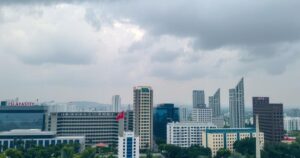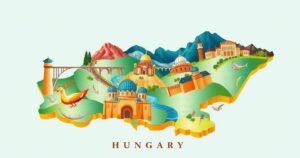Navigating the Social Media Influence: Political Dynamics and Challenges

The article examines the power dynamics of social media, focusing on Elon Musk’s acquisition of Twitter and its implications for politics in Pakistan and Europe. The hybrid Pakistani government struggles to counter narratives from the PTI party, while Musk’s provocative comments highlight challenges in public discourse and the potential for misinformation. The need for regulatory measures to maintain democratic integrity in the face of evolving social media influence is emphasized.
In the contemporary landscape of social media, the hybrid government of Pakistan shares similarities with established European democracies, such as the United Kingdom and Germany, regarding their regulation of platforms like Twitter, now rebranded as X under Elon Musk. Despite initial skepticism about Musk’s acquisition, he has exercised significant influence. His recent engagement in both U.S. and U.K. political discourse, notably concerning immigration and criminal justice, has raised eyebrows. Furthermore, the Pakistani government’s struggles with social media dominance by opposition figures highlight the dichotomy of control over traditional versus social media platforms. Musk’s statements have the potential to shape public opinion and expose existing government weaknesses, as evidenced by his controversial comments that straddle racial and political sensitivities.
The contrasting approaches of governments in controlling narratives underscore a complex relationship with social media. In Pakistan, the hybrid regime’s overwhelming control over traditional media struggles to extend into the social media realm, where the Pakistan Tehreek-e-Insaf party (PTI), led by Imran Khan, successfully garners public support. Musk’s engagement in political debates illustrates how social media can serve as a powerful tool for narrative-building, sometimes at the expense of factual accuracy and nuanced dialogue. His recent actions suggest a deliberate strategy to distract from criticisms, leveraging controversies to shift attention away from his positions.
Ultimately, as evidenced by Musk’s provocations, unchecked use of social media can exacerbate societal divisions and weaken democratic structures—an issue increasingly recognized by European leaders. Such dynamics raise fundamental questions about the role of social media in shaping political landscapes and whether adequate regulatory frameworks can be established to mitigate the influence of figures like Musk.
Social media continues to transform the political landscape, operating with minimal oversight in many regions. Elon Musk’s acquisition of Twitter and subsequent actions illustrates a blend of business interests and political influence, complicating traditional notions of media governance. In countries like Pakistan, where the government faces significant opposition on social media platforms, the need for sophisticated strategies becomes evident. Musk’s recent statements reflect a growing realization among political figures—both in the U.S. and Europe—regarding social media’s capacity to influence public discourse and electoral outcomes.
This discussion reveals the dual nature of social media as both a platform for free speech and a potential catalyst for misinformation and societal division. The case of Elon Musk, alongside the political situations in Pakistan and Europe, exemplifies the urgent need for regulatory measures that can curtail the manipulation of narratives on social media while fostering democratic engagement. Political figures and governments must adapt to this evolving landscape, or face the risks of democratic erosion amidst growing public skepticism towards conventional media narratives.
Original Source: www.dawn.com







